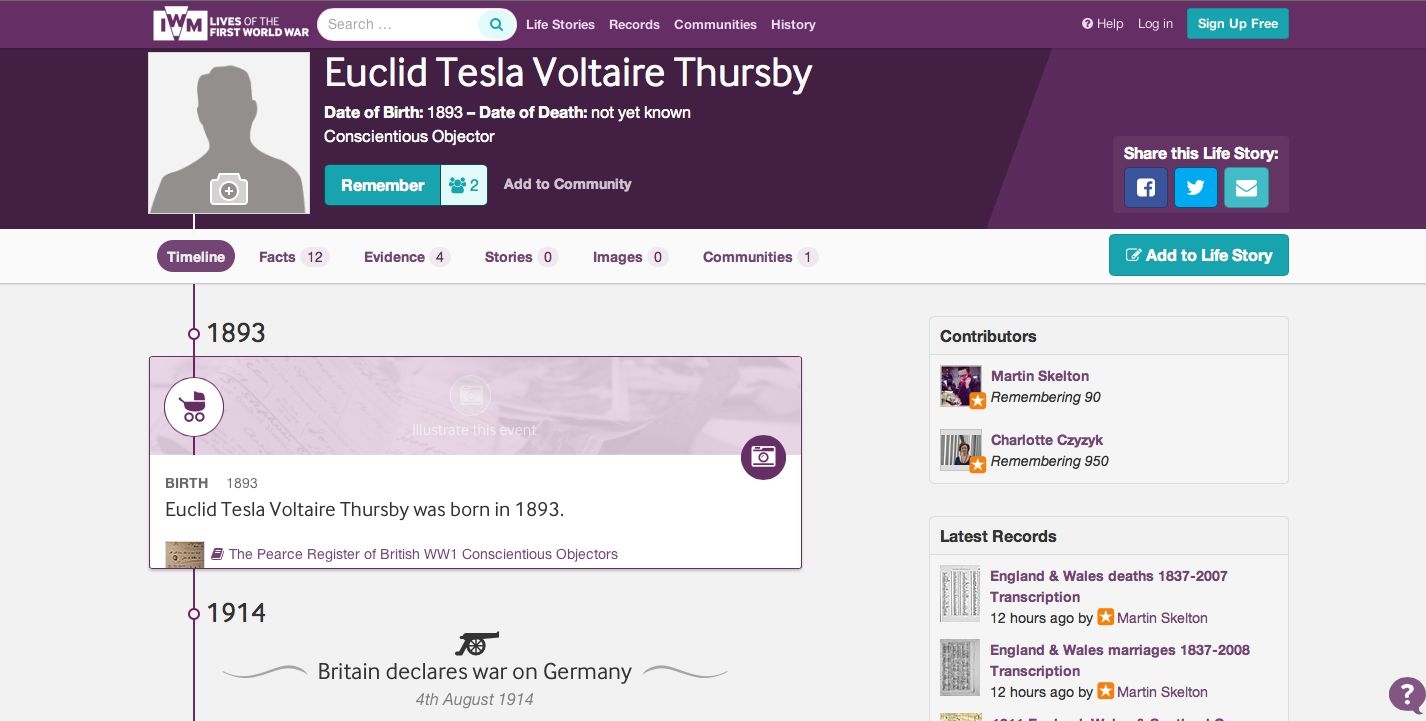The records of more than 16,500 men who refused to fight in the Great War on grounds of conscience have been added to the Imperial War Museum’s Centenary memorial website.
Their names went online as part of ‘Lives of the First World War’ on May 15th 2015 – International Conscientious Objectors Day.
IWM says the Pearce Register is the most comprehensive publicly available record of the stories of British men who refused to go to war on religious, ethical, political or social grounds. They include:
*John Wilfred Harvey, a Quaker who served with the Friends’ Ambulance Unit in both France and Corsica.
*William Harrison who was court-martialled and sentenced to hard labour in a London jail; he would not be freed until 1919.
*Joseph Alfred Pearson from New Brighton gave up his conscientious objection after brutal treatment at Birkenhead barracks, was sent to France and was killed outside Ypres.
Lives of the First World War, launched for the Centenary in 2014 as a permanent digital memorial, has so far largely focussed on those who served in the armed forces.
The inclusion of conscientious objectors has been welcomed by the historian, and Lives of the First World War Ambassador, Dan Snow.
He said: “They made very brave decisions to stand up to the politicians and generals, and reject their call to arms. Now the IWM is quite rightly putting conscientious objectors on its fantastic and ambitious Lives of the First World War. Their inclusion is vital if we’re to get a real snapshot of society as a whole.”

Euclid Thursby’s entry in ‘Lives of the First World War’. Thursby, a Lancashire cotton weaver with links to the Independent Labour Party, opposed the war on political grounds. A tribunal sent him to work at a disused prison in Wakefield.
Cyril Pearce, a former senior lecturer at Leeds University, has spent more than 20 years compiling the Pearce Register of conscientious objectors. His sources have included documents, letters, images, tribunal records and diaries.
Now the public are being urged to help complete the records by adding more information, from ‘attributing facts, uploading photographs through to actively remembering the individuals who opposed active service on moral, religious and political grounds.’
Mr Pearce said he was delighted to be contributing his register: “Ahead of the centenary of conscription. I hope many more people will be able to contribute to the work I’ve already done and that thousands more will learn about this alternative history of the First World War.”
The UK Parliament passed the Military Service Act introducing conscription in 1916. Until then Britain had relied on volunteers answering calls to join the armed forces.
Since the launch of Lives of the First World War a year ago, more than 7.6 million life stories of servicemen and nurses have been discovered, remembered and shared on the site.
IWM Director-General Diane Lees commented: “With the inclusion of The Pearce Register we can realise our vision to create a memorial to every man and woman who contributed to society during this conflict.
“We are grateful to Cyril for sharing his work with us and we hope many more people will contribute to the unique and fascinating life stories of the conscientious objectors who risked so much on principle, political or religious grounds.”
To learn more, go to Lives of the First World War and search life stories/conscientious objectors.
Information & images supplied by the Imperial War Museum
Posted by: Peter Alhadeff, Centenary News